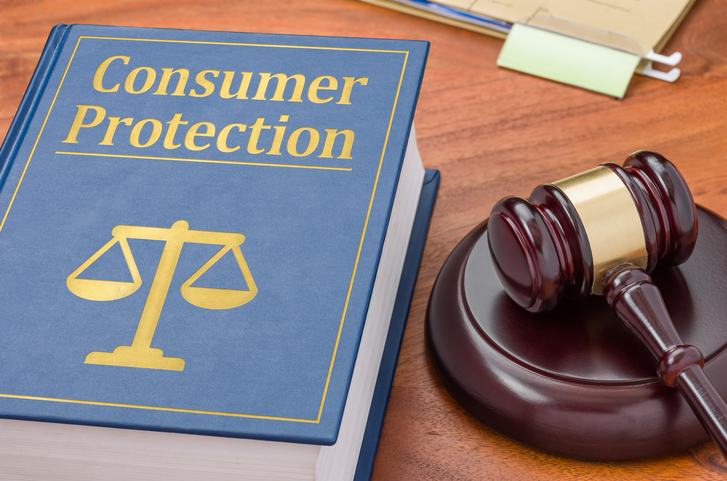The federal government passes financial regulations to protect consumers from unfair practices. The Consumer Financial Protection Bureau (CFPB) exists to make sure that banks, lenders and other financial institutions follow those regulations. You might not give much thought to the CFPB but it’s always operating behind the scenes to make sure that you’re treated fairly when it comes to money matters.
A financial advisor can help you put a financial plan together for your retirement goals and needs.
What Is CFPB?
CFPB stands for Consumer Financial Protection Bureau. And it’s a U.S. government agency that exists to protect consumers against deceptive, abusive or unfair practices in the financial services market. The CFPB was created in 2011 following the passage of the Dodd-Frank Wall Street Reform and Consumer Protection Act.
That Act was designed to build some safeguards into the financial services industry to prevent a repeat of the 2008 housing crisis and the recession that it triggered. President Obama proposed a central government agency that would provide oversight for the enforcement of financial regulations by focusing exclusively on consumer protection.
What Is the Main Purpose of the CFPB?

The CFPB exists to ensure that consumers can access financial services without being subjected to abuse or deception at the hands of companies. That includes making sure that financial companies are transparent in how they share information with consumers and that they provide the same quality of services to everyone.
Again, that goes back to the reforms that were passed to address the fallout from the housing market crisis. The crisis was in part driven by mortgage lenders issuing subprime loans to borrowers with poor credit, which increased the risk of default. The CFPB works to ensure that consumers know what they’re getting—and what they’re agreeing to—when borrowing money or using financial services.
There are three main areas the CFPB focuses on to further its mission:
- Providing consumers with knowledge that empowers them to make informed financial choices.
- Taking action against companies that engage in predatory or illegal behavior.
- Educating financial companies about their responsibilities and consumers about financial literacy.
What Does the CFPB Do?
The CFPB has an extensive reach in terms of what it does to protect consumers. Its activities are centered around different areas that are relevant to its mission.
First, the CFPB ensures that financial entities are compliant with federal financial regulations. That’s done through the supervision and examination of banks, lenders and other financial institutions that are subject to federal consumer laws. For example, that includes mortgage lenders, debt collectors and credit card companies.
Next, the CFPB manages the enforcement of federal consumer financial laws. If a bank, company or other financial institution breaks the law, the CFPB can step in and investigate it. When deemed necessary, the CFPB can initiate a public enforcement action which can include suing the entity in question in civil court. That can lead to civil damages being paid out to harmed consumers and/or an injunction filed against the entity to prevent them from repeating the violation.
Consumers can also file complaints about banks, lenders or other entities with the CFPB online. For example, say you open a new bank account, but the bank doesn’t provide you with a list of fees you’ll pay. That’s a violation of the Truth in Savings Act that you could report to the CFPB.
The CFPB also works to ensure that consumers are educated about financial products and services. There’s an extensive body of information on the CFPB website that covers a variety of topics, including mortgage loans, budgeting, credit cards, payday loans and banking. If you have a money question, chances are you can find an answer to it on the CFPB website.
What Laws Does CFPB Regulate?
Broadly speaking, the CFPB regulates federal consumer financial laws. Some of the laws the CFPB enforces include:
- Consumer Financial Protection Act
- Consumer Leasing Act of 1976
- Electronic Fund Transfer Act (except with respect to Section 920)
- Equal Credit Opportunity Act
- Fair Credit Reporting Act (except with respect to Sections 615(e) and 628)
- Fair Debt Collection Practices Act
- Federal Deposit Insurance Act, Section 43
- Fair Credit Billing Act
- Home Mortgage Disclosure Act of 1975
- Home Ownership and Equity Protection Act of 1994
- Military Lending Act (10 U.S.C. 1987)
- Real Estate Settlement Procedures Act of 1974
- Truth in Lending Act
- Truth in Savings Act
So if you have a credit card, a bank account or a mortgage, or you apply for credit or use prepaid debit cards, then the CFPB is there making sure that your rights are protected.
How to File a Complaint With the CFPB

If you think your rights have been violated when dealing with a financial institution, you can submit a complaint to the CFPB. There’s a specific process consumers are encouraged to follow.
First, you’ll need to figure out if you have a problem that the CFPB can address. You can submit a complaint to the CFPB if you have an issue with any of the following:
- Checking and savings accounts
- Credit cards
- Credit reports and other personal consumer reports
- Debt collection
- Credit repair services
- Debt settlement
- Money transfers, virtual currency, and money services
- Mortgages
- Payday loans
- Personal loans like installment and title loans
- Prepaid cards
- Student loans
- Vehicle loans or leases
When the entity you have an issue with is on the list, the CFPB encourages you to reach out to the company first to see if any resolution can be offered. If not, you can take the next step to file a formal complaint.
When submitting a complaint, you’ll want to provide as much detail about the company and the issue as possible. If you have supporting documentation, such as contracts, emails or other written communications you can submit those as well.
When the CFPB receives the complaint, it’s routed to the company for a response. The company has up to 60 days to provide a final response. The CFPB publishes information about your complaint in the Consumer Complaint Database so that other consumers can review it. You’ll also have an opportunity to offer feedback on the company’s response. The CFBP may take further steps to initiate an enforcement action if your complaint warrants one.
The Bottom Line
What is CFPB? In simple terms, it’s a watchdog for consumers. Though the constitutionality of the CFPB’s structure and funding continues to be challenged, the agency remains committed to carrying out its mission of consumer protection.
Tips for Your Financial Plan
- Financial planning is extremely important, but it can be intimidating to do it on your own. Finding a financial advisor doesn’t have to be hard. SmartAsset’s free tool matches you with up to three vetted financial advisors who serve your area, and you can interview your advisor matches at no cost to decide which one is right for you. If you’re ready to find an advisor who can help you achieve your financial goals, get started now.
- Before even talking to an advisor, you can think about how you want to potentially divvy up your investable assets. Use this free asset allocation calculator to figure out the right balance for you based on your risk tolerance.
Photo Credit: ©iStock/Ahmed Zaggoudi, ©iStock/simpson33, ©iStock/Zerbor
